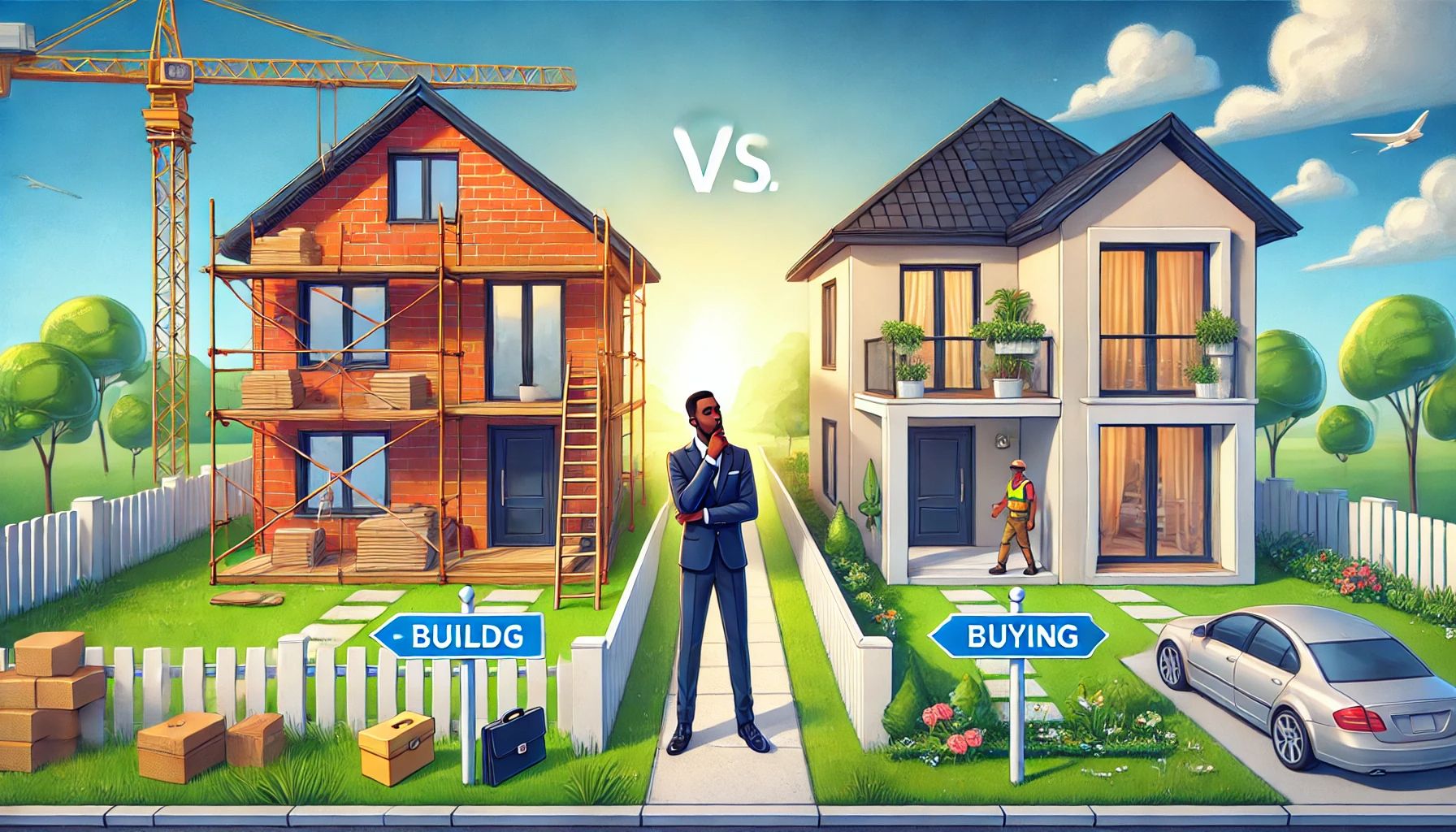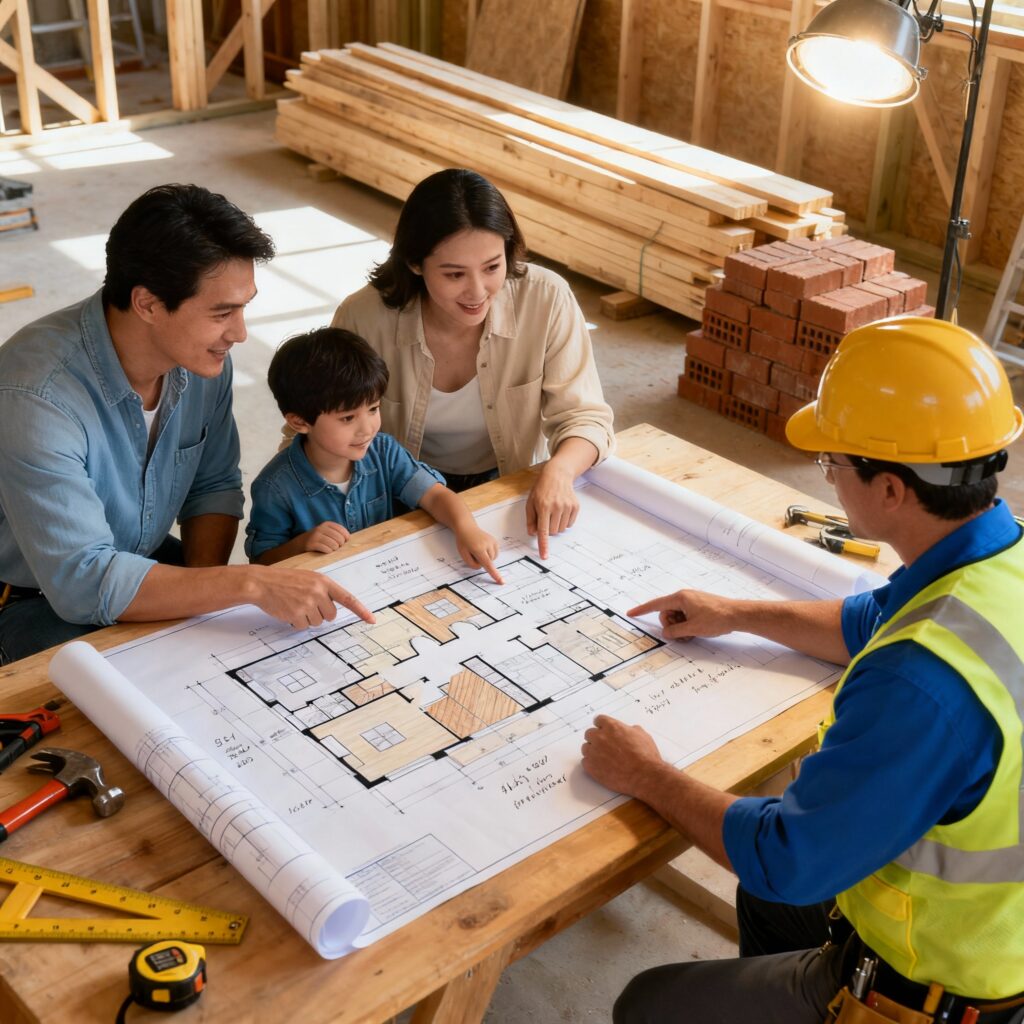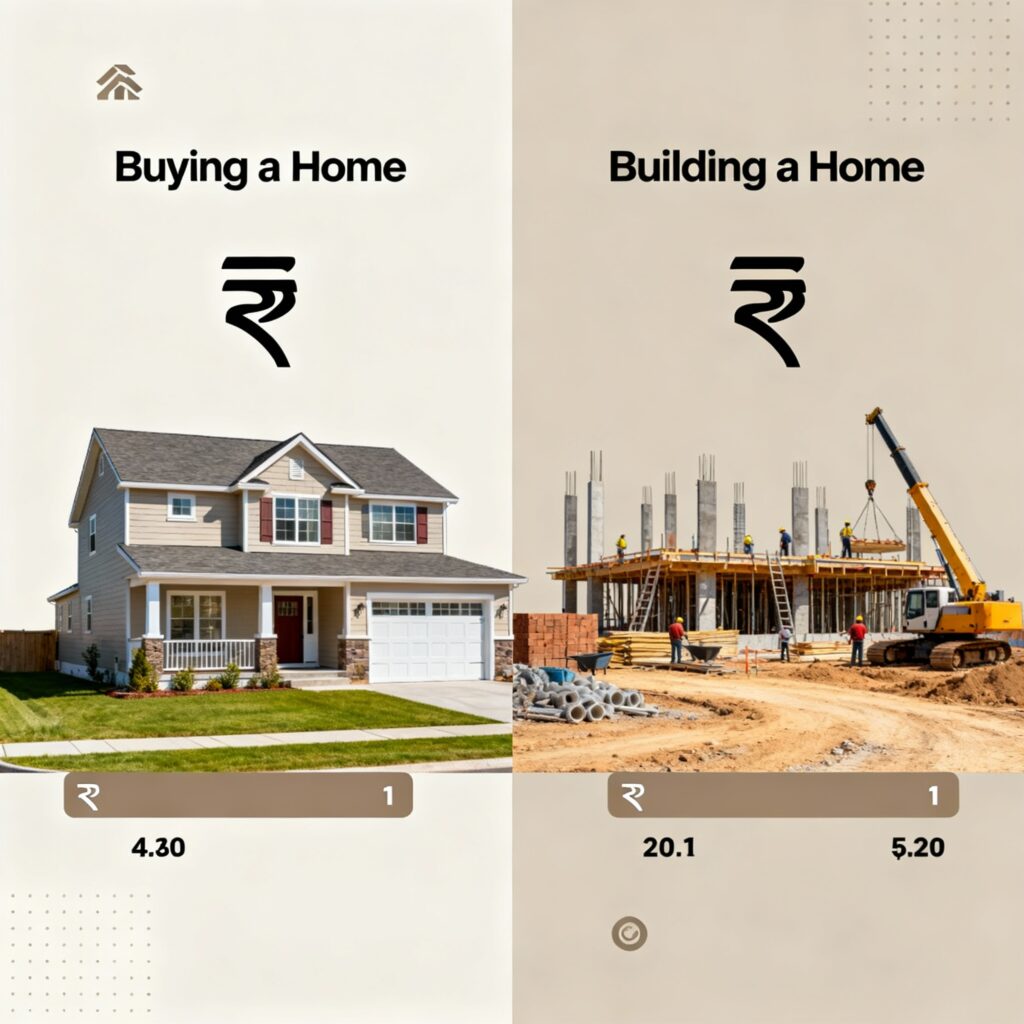Phone:
(701)814-6992
Physical address:
6296 Donnelly Plaza
Ratkeville, Bahamas.

Deciding between buying vs building a home is one of the biggest choices you’ll face when planning your future. Each option comes with its own benefits, drawbacks, costs, and timeline — and the best decision depends entirely on your personal priorities and lifestyle.
In this guide, we’ll break down everything you need to know: the pros and cons, cost comparisons, customization options, timelines, and what kind of buyer (or builder) you might be.

1. Faster Move-In
One of the biggest advantages of buying is the speed of the process. In most cases, once you’re pre-approved for a mortgage and find a suitable home, you can close and move in within 30 to 90 days.
2. Established Neighborhoods
Many existing homes are located in mature areas with schools, local amenities, public transport, and community infrastructure already in place.
3. Mature Landscaping and Extras
You’re not just buying a house — you’re buying a yard with grown trees, fences, driveways, and sometimes even finished basements or pools. These extras can save thousands.
4. Lower Upfront Costs (In Some Markets)
Depending on your location and the real estate market conditions, buying a home can be more affordable upfront than building. You also avoid many of the hidden fees associated with construction.
1. Less Customization
You’ll likely have to compromise on layout, finishes, or features — unless you want to invest in expensive renovations later on.
2. Hidden Maintenance Issues
Older homes can come with outdated systems (roof, plumbing, electrical), which may require major repairs sooner than you’d like.
3. Competitive Market Conditions
In hot real estate markets, competition is intense. You might face bidding wars, limited inventory, or even settle for a home that’s not your top choice.

1. Full Customization
This is the top reason many choose to build. You have full control over the layout, materials, appliances, flooring, colors, and energy-efficient features — all tailored to your vision.
2. Energy Efficiency and Modern Features
New homes are built to current building codes and typically include energy-saving technologies, smart home integration, and better insulation — which could save you money long-term.
3. Lower Maintenance (At Least for a While)
Since everything is brand-new, you likely won’t face major repairs or replacements for several years.
4. Potential Long-Term Appreciation
While it may cost more upfront, custom-built homes often increase in value over time, especially in growing neighborhoods.
1. Longer Timeline
From purchasing land to final walk-through, building a home can take 6 to 12 months or more, depending on weather, contractor schedules, and permit delays.
2. Higher Initial Costs
Construction costs, permits, inspections, utility hookups, landscaping, and custom upgrades can quickly add up.
3. Stress and Decision Overload
Managing designs, contractors, materials, deadlines, and budgets can be overwhelming — especially if it’s your first build.
4. Location Limitations
Many new homes are built in developing areas, which may not yet have schools, shops, or transit systems nearby.

One of the most important considerations in the buying vs building a home debate is cost. Here’s how they stack up:
Keep in mind: Construction costs fluctuate based on materials, location, and labor availability. Also, land in desirable areas may be expensive or hard to find.
When comparing buying vs building a home, timing can be a dealbreaker.
Let’s narrow it down to help match the decision to your situation.
⚠️ Keep in mind: Construction costs fluctuate based on materials, location, and labor availability. Also, land in desirable areas may be expensive or hard to find.
| Feature | Buying a Home | Building a Home |
|---|---|---|
| Timeline | 1–3 months | 6–12+ months |
| Upfront Cost | Lower in most cases | Typically higher |
| Customization | Limited | Full control |
| Location | More central, established | Often suburban or rural |
| Energy Efficiency | May need upgrades | Built to current standards |
| Maintenance | Potential repairs early on | Minimal repairs initially |
| Stress Level | Lower (usually) | Higher (unless you hire help) |
There’s no clear winner in the buying vs building a home debate. Both have clear advantages and drawbacks — and the right path depends on your timeline, budget, preferences, and long-term goals.
Ask yourself:
No matter which path you choose, working with experienced real estate agents, builders, and financial advisors will help ensure a smooth process from start to finish.
Still torn between buying and building your next home? We can help. Whether you’re looking for available listings, reputable builders, or cost comparisons, our team can guide you every step of the way.
👉 Contact us today for a no-pressure consultation and start building (or buying) your dream future.